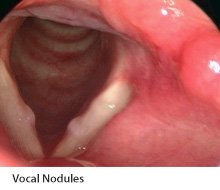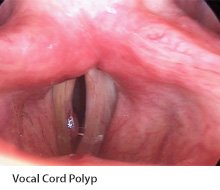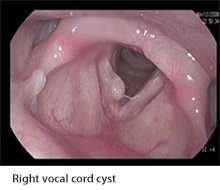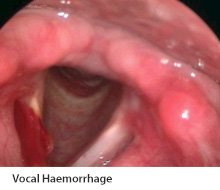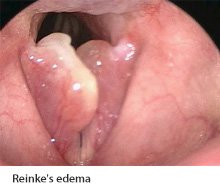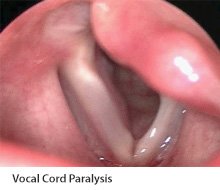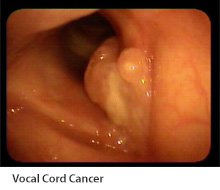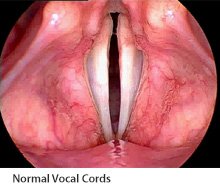Speech is our main mode of communication. However, like most things, we often take it for granted and do not realise how important our voice is until we lose it.
Common Causes of Vocal Cord Damage
-
Misuse and Abuse
- Excessive shouting, talking and singing
-
Acid Reflux
- Occurs when our acidic stomach contents flow up into our throat and irritates it, causing inflammation
- Other symptoms include constant throat-clearing, cough and hoarseness
-
Smoking & Alcohol
- Toxins from cigarettes cause vocal cords to swell and become inflamed
- Alcohol leads to an increased incidence of acid reflux
- The incidence of vocal cord cancer increases 30x in someone who both smokes and drinks
-
Nasal Allergies & Sinus Infections
- These are often associated with post-nasal drip
- This irritates the throat and leads to frequent coughing and throat-clearing, which can cause vocal trauma
Apart from hoarseness, other common vocal cord diseases include:
-
Vocal Nodules
-
Vocal Polyps
-
Vocal Cord Cysts
-
Vocal Granuloma
- Associated with cough and throat-clearing, often with acid reflux as well
- Usually treated with medication but may require surgery if it enlarges to affect the voice and breathing
-
Vocal Haemorrhage
-
Acute Laryngitis
-
Voice loss due to a vocal cord inflammation from a virus infection
-
Reinke’s Edema
-
Vocal Cord Paralysis
-
Vocal Cord Cancer
Evaluation & Diagnosis
Vocal Cord Surgery
If surgery is deemed to be necessary, the timing must be right as well. A period of medical optimization before surgery is recommended if there is concomitant reflux disease or post nasal drip.
Most surgeries on the vocal cords are performed as a day surgery procedure. After surgery, voice rest is usually advised for two weeks. Whispering is absolutely prohibited.
Post-voice surgery instructions

